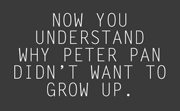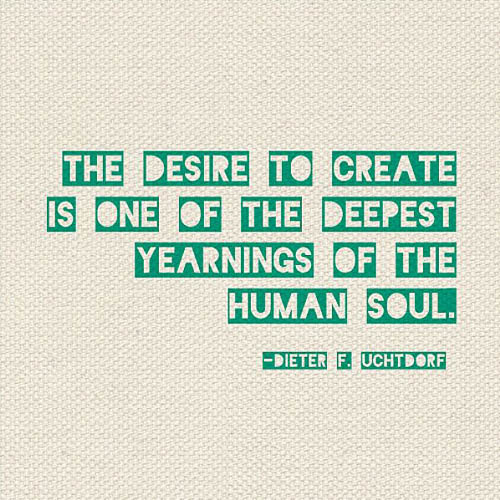Success Advice
7 Reasons Why You Have Lost Your Creativity

In a fast paced innovative world where attention spans are shrinking by the minute, we are becoming more and more ‘under the pump’ to think and be creative. We tend to hit a block and stay frustrated and impatient in hopes of a creative flow to come our way again.
We here at Addicted2Success, see this as a HUGE problemo and have therefore decided to research and share with you, the 7 Reasons Why You Have Lost Your Creativity, so that you may be able to pin point your vice and get the creative juices pumping out again.
Why You Have Lost Your Creativity
1. You Grew Up!
 All young kids have creative ideas. They make up imaginary playmates, play with dolls and action figures, bake cookies in imaginary ovens, solve imaginary mysteries when they play detective with the other kids in the neighborhood, they sing songs they make up, they dance in free form, and when they draw pictures it doesn’t matter that horses aren’t purple in real life.
All young kids have creative ideas. They make up imaginary playmates, play with dolls and action figures, bake cookies in imaginary ovens, solve imaginary mysteries when they play detective with the other kids in the neighborhood, they sing songs they make up, they dance in free form, and when they draw pictures it doesn’t matter that horses aren’t purple in real life.
Somewhere along the way, we become more rational, even jaded sometimes, about the world. Those few among us who stay creative as adults often exhibit a child-like spirit. If you walk into the office of creative types like graphic artists, website designers, engineers, and programmers, it is very likely that you find toys around. Think about Google, a company known for hiring creative individuals. They turn their their workspace into a playground of sorts with large shiny slides to carry you in kid-like fashion from one floor to the next and they have bean bags for chairs in some of their boardrooms.
2. Your Need To ‘Make Money’ May Have Squelched Your Creative Side
 As we near adulthood, our parents, teachers, school counsellors, and even our peers start talking to us about the practical side of life. Our parents might say, “You need to have a way to support yourself.” Our guidance counsellors may steer us toward a certain college degree program or specialized training program because it pays well and we have an aptitude for it, not because we enjoy it. Our need to make money and take care of ourselves often squelches our creative side.
As we near adulthood, our parents, teachers, school counsellors, and even our peers start talking to us about the practical side of life. Our parents might say, “You need to have a way to support yourself.” Our guidance counsellors may steer us toward a certain college degree program or specialized training program because it pays well and we have an aptitude for it, not because we enjoy it. Our need to make money and take care of ourselves often squelches our creative side.
Those young adults who rebel and become musicians and artists may hear things like, “When are you going to get a real job?” even if they are working 60 hours a week! If you follow these same people into their thirties and forties, most of the time you’ll find that they finally give in too and go and get a “real job” to support themselves and their family.
3. Pharmaceuticals Are Zapping Our Creativity
 According to the United States Centers For Disease and Prevention (CDC), more than 5.2 million children are diagnosed each year with attention deficient disorder (ADD). These kids tend to be harder to manage in the classroom so schools and doctors have been pushing Ritalin, a pharmaceutical that calms them down and also zaps their creativity! In fact, according to the CDC, as many as 70 percent of all children in some areas are given Ritalin.
According to the United States Centers For Disease and Prevention (CDC), more than 5.2 million children are diagnosed each year with attention deficient disorder (ADD). These kids tend to be harder to manage in the classroom so schools and doctors have been pushing Ritalin, a pharmaceutical that calms them down and also zaps their creativity! In fact, according to the CDC, as many as 70 percent of all children in some areas are given Ritalin.
Creativity altering and behavior modifying pharmaceuticals are also given to those individuals who are considered bi-polar, manic, or depressed. Then there are those individuals who have Asperger’s Syndrome or so called “personality disorders” who are given pharmaceuticals that crush creativity too. Some of the most famous creative individuals that have ever lived are thought to have had Asperger’s Syndrome, bouts of depression, mania, ADD, and bi-polarism. Think what we would have lost if Mozart or Van Gogh would have been given pharmaceuticals to subdue their creativity!
4. You May Not Be Getting Enough Sleep or the Right Kind Of Sleep
 When we sleep, there are two basic phases: REM sleep and deep sleep. REM sleep is a light form of sleep named after the fact that we often have “rapid eye movements” during REM sleep. It takes about a hour and a half to move out of REM sleep into deep sleep. Deep sleep is when our brains sort out and catalog all the information we have taken in during the day. If we don’t get enough of this type of sleep, we lose our ability to be creative and imaginative.
When we sleep, there are two basic phases: REM sleep and deep sleep. REM sleep is a light form of sleep named after the fact that we often have “rapid eye movements” during REM sleep. It takes about a hour and a half to move out of REM sleep into deep sleep. Deep sleep is when our brains sort out and catalog all the information we have taken in during the day. If we don’t get enough of this type of sleep, we lose our ability to be creative and imaginative.
5. You May Be Vegging Out In Front Of the TV Too Much
 There is a famous TV viewing experiment conducted by Herbert Krugman dating back to 1969. Herbert found that in less than one minute of TV viewing, our dominant brain waves switch from beta waves to alpha waves. It puts us in a vegetative state where our conscious mind goes on autopilot. While this can be good in small quantities to relieve stress, most Americans are watching on average more hours of TV than any other country. Too much TV stifles creativity.
There is a famous TV viewing experiment conducted by Herbert Krugman dating back to 1969. Herbert found that in less than one minute of TV viewing, our dominant brain waves switch from beta waves to alpha waves. It puts us in a vegetative state where our conscious mind goes on autopilot. While this can be good in small quantities to relieve stress, most Americans are watching on average more hours of TV than any other country. Too much TV stifles creativity.
6. You May Be Just Too Darn Tired!
 In our modern day society, we are on the go all the time. We are racing the clock trying to get our work done, get to meetings, fit in time with the kids and our spouse so we don’t feel guilty, and generally we sacrifice sleep to make more hours in the waking day. Over time, this raises our cortisol levels and puts us in a chronic state of stress and anxiety which depletes our energy.
In our modern day society, we are on the go all the time. We are racing the clock trying to get our work done, get to meetings, fit in time with the kids and our spouse so we don’t feel guilty, and generally we sacrifice sleep to make more hours in the waking day. Over time, this raises our cortisol levels and puts us in a chronic state of stress and anxiety which depletes our energy.
Under these circumstances, most people find it very difficult to even think about being creative.
7. Standardized Tests, Stereotyping, and One Correct Answer
 Our educational systems, including K-12 and advanced metriculation, have by and large resorted to standardized tests. These tests have one right answer. In school and college, we are given multiple choice tests designed to have one right answer. We are given true and false tests where we have to pick one or the other with no room for exceptions or creative thinking. The images and common examples used are stereotyped. Even as older adults, we have to take driver’s license tests and other tests that have only one correct answer for each question.
Our educational systems, including K-12 and advanced metriculation, have by and large resorted to standardized tests. These tests have one right answer. In school and college, we are given multiple choice tests designed to have one right answer. We are given true and false tests where we have to pick one or the other with no room for exceptions or creative thinking. The images and common examples used are stereotyped. Even as older adults, we have to take driver’s license tests and other tests that have only one correct answer for each question.
We have created a society that is taught from a young age to zero in on one way of thinking about each issue and topic. This squelches creative ideas.
Creativity Picture Quote
Just remember this:

Business
The Simple Security Stack Every Online Business Needs
Most small businesses are exposed online without realising it. This simple protection stack keeps costs low and risks lower.

Running a business online brings speed and reach, but it also brings risk. Data moves fast. Payments travel across borders. Teams log in from homes, cafés, and airports. (more…)
Business
If Your Business Internet Keeps Letting You Down, Read This
From smoother operations to better security, dedicated internet access is quietly powering today’s high-performing businesses.

Today, a dependable internet service is the bedrock for uninterrupted business operations. Many organizations rely on stable online connections for communication, data transfer, and customer interaction. (more…)
Did You Know
How Skilled Migrants Are Building Successful Careers After Moving Countries
Behind every successful skilled migrant career is a mix of resilience, strategy, and navigating systems built for locals.

Moving to a new country for work is exciting, but it can also be unnerving. Skilled migrants leave behind familiar systems, networks, and support to pursue better job opportunities and a better future for their families. (more…)
-

 News1 week ago
News1 week agoBrandon Willington Builds 7-Figure Business by Ignoring Almost Everything
-

 Health & Fitness2 weeks ago
Health & Fitness2 weeks agoWhat Minimalism Actually Means for Your Wellness Choices
-

 Did You Know2 weeks ago
Did You Know2 weeks agoWhy Most Online Courses Fail and How to Fix Them
-

 Business2 weeks ago
Business2 weeks agoIf Your Business Internet Keeps Letting You Down, Read This
-

 Business4 days ago
Business4 days agoEntrepreneur’s Guide to Pay Stubs: Why Freelancers and Small Business Owners Need a Smart Generator
-

 Business2 days ago
Business2 days agoThe Simple Security Stack Every Online Business Needs
-

 Finances2 days ago
Finances2 days agoWhy Financial Stress Is One of the Biggest Barriers to Personal Growth
-

 Scale Your Business2 days ago
Scale Your Business2 days ago5 Real Ways to Grow Your User Base Fast



























16 Comments